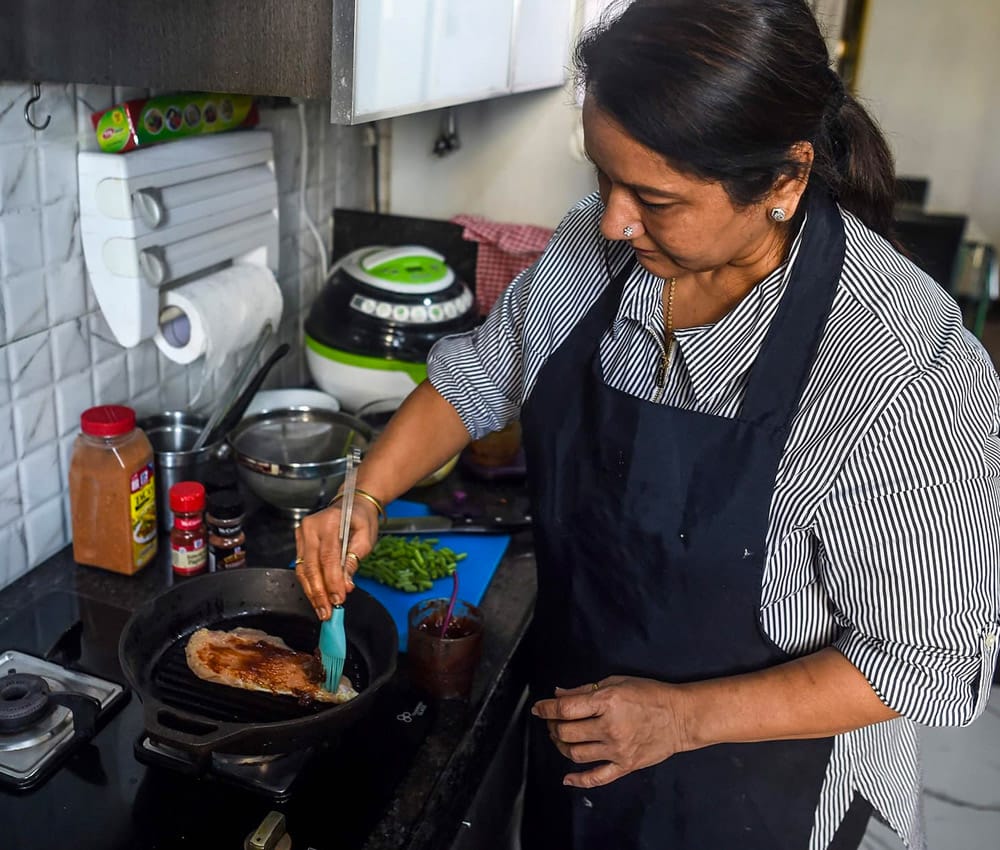Surely you know someone who unfortunately got laid off because of the lockdowns put in place during the pandemic. Perhaps you even have a neighbour who’s spirited on and launched a Dabba service out of their home kitchen, or sophisticated catering service. Since the advent of COVID-19, the commercial food industry came to a standstill, but the food is what everyone resorted to keeping making some bucks.
However, there are problems with this boom of home caterers. As per the Food Safety and Standards Authority of India (FSSAI) rules any home-based food business has to register with the organisation; and any business that crosses INR 12 lakhs in sales, will have to get a license. These rules have been around since 2011, but several home caterers were not aware until COVID-19 hit.
The current FSSAI norms are mainly catered toward commercial establishments. And, most home chefs aren’t aware of the rules.
Ten-year-old Vinusha M.K successfully runs a baking business called ‘Four Seasons Pastry’ in Chennai. “I was aware of the registration requirements,” says the young entrepreneur while speaking with the Deccan Herald. Vinusha applied for the FSSAI certification in March and got it in June. She adds that registration is important, and the government must spread awareness about the rules and provide time for the regulations to be complied with.
As we’re still in the midst of a pandemic, there’s no doubt that safety measures and other norms need to be followed. But as more home-based food business mushroom across the country, it’s unfortunate that FSSAI norms are only stringent on paper.
Need To Cook Up Fresh Guidelines
To a commoner, ordering in from their next-door-aunty, rather than a commercial kitchen or a restaurant, especially during a pandemic seems like a safer bet. After all, you’d rather trust a known source in the current situation. To add to that, ordering from an aunty’s home kitchen is cheaper compared to a restaurant.
Another problem is that commercial establishments too can pose as home kitchens and deliver via delivery apps. This rules out quality control and hygiene checks. Hence, perhaps, two kinds of licenses – one for home cooks and another for commercial institutions – is the way to go.
FSSAI rules and regulations should look into including food safety norms, proper sourcing of materials and hygiene checks, and whether workers are paid correct wages.
Home catering businesses deserve a fair chance in the market. What we need from FSSAI is stringent checks and centralised guidelines for both home-based and commercial food businesses.










